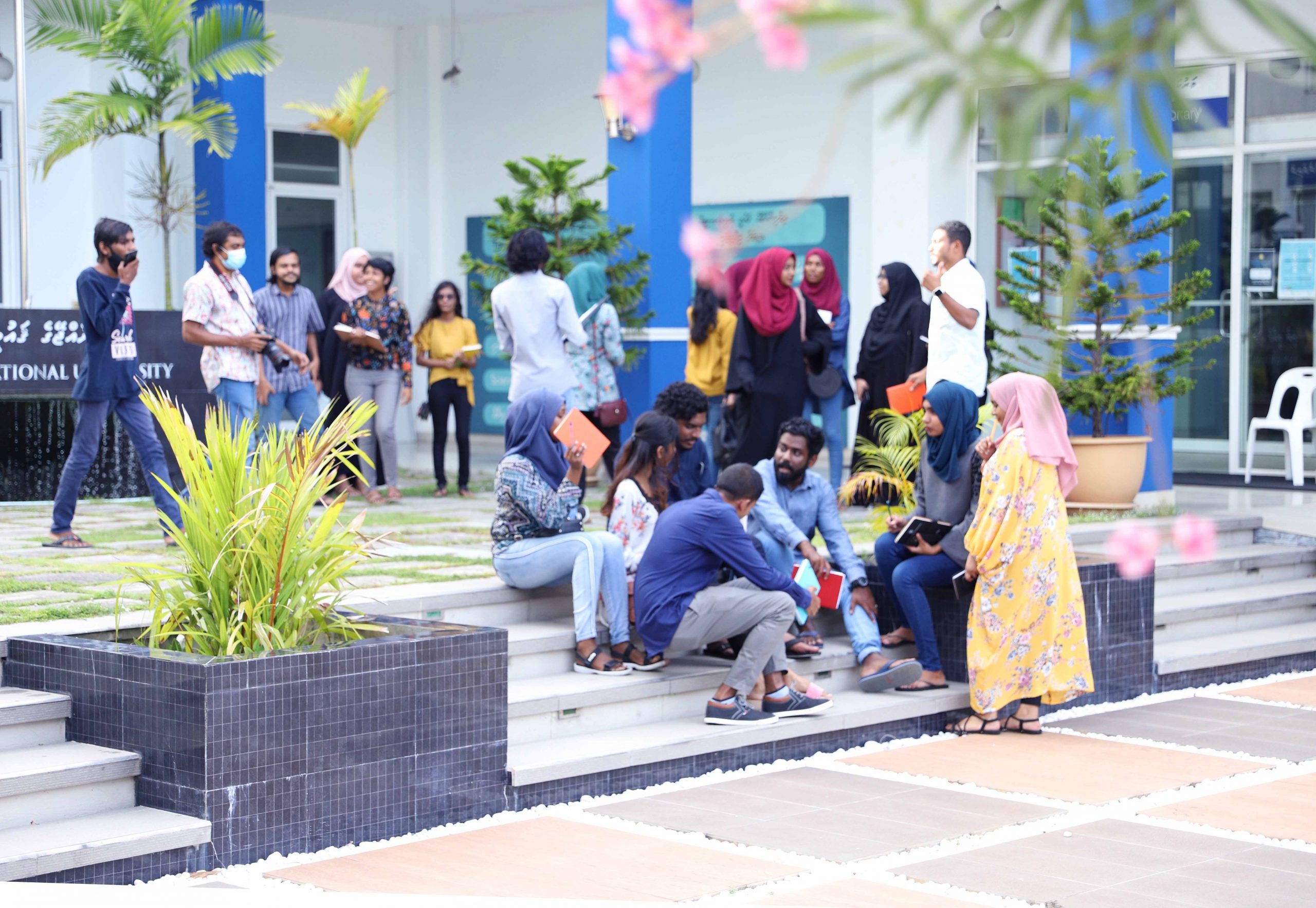Introduction
In today’s interconnected world, national security extends beyond traditional military concerns to encompass economic resilience, environmental sustainability, social stability, technological readiness, and geopolitical strategy. For a small island nation like the Maldives, where national security is deeply rooted in its unique geographical and societal context, and where vulnerabilities are shaped by geographic isolation and limited resources, a holistic and forward-looking approach is essential.
Addressing these complex challenges requires integrating diverse perspectives and fostering collaboration across disciplines. As the national university, The Maldives National University (MNU) is uniquely positioned to lead this effort. Through its multidisciplinary academic structure, MNU supports research, education, innovation, and policy engagement that collectively contribute to national resilience.
MNU’s academic platform serves as a vital enabler of national security by bridging the gap between theory and practice and aligning its work with national and regional priorities.
The Multidisciplinary Approach to National Security
The complexities of national security will greatly benefit from academic platforms. At its core, national security encompasses elements of law, economics, environmental science, technology, sociology, political science, and more. MNU’s multidisciplinary faculty facilitates the convergence of these fields, fostering a dynamic and interconnected understanding of security. MNU’s mission is to foster excellence not only in specialised disciplines but also in their integration, which can lead to the development of solutions that address the multifaceted nature of national security challenges.
For example, in the context of the Maldives, climate change and environmental security are paramount. The country’s vulnerability to climate change, rising sea levels, and natural disasters emphasises the need for expertise in environmental science, disaster management, and sustainable development. Simultaneously, economic security, influenced by tourism, fisheries, and trade, requires insights from economics, business studies, and international relations. By embracing a multidisciplinary approach, MNU creates academic platforms that bring together scholars and practitioners from these disciplines, equipping society with the tools to navigate these intertwined challenges effectively through sustainable and context-appropriate solutions.
Fostering Research and Innovation
An academic platform for national security must prioritise research and innovation as core components of its mission. At the heart of MNU’s contribution is research, which serves as a hub for knowledge generation, promoting inquiry that tackles critical security issues. Through collaborative research projects, the university explores innovative solutions to contemporary challenges that are both locally grounded and globally informed. These projects not only enhance the understanding of security dynamics but also contribute to the formulation of evidence-based policies and strategies.
In the Maldivian context, research initiatives might focus on areas such as maritime security, sustainable resource management, cybersecurity, and regional cooperation. By leveraging its multidisciplinary faculty, MNU can provide comprehensive analyses that inform decision-making and policy development. Additionally, the university’s emphasis on innovation encourages the adoption of cutting-edge technologies and methodologies, ensuring that national security measures remain adaptive and forward-looking.
Bridging Academic and Practical Knowledge
One of the strengths of MNU’s academic platform is its ability to bridge the gap between academic knowledge and practical application. National security challenges often require actionable solutions that resonate with societal realities. MNU fosters this connection by engaging students, researchers, policymakers, and practitioners in collaborative efforts. The university acts as a catalyst for dialogue, bringing together stakeholders to discuss, analyse, and address security concerns.
For instance, MNU might organise forums, workshops, and conferences that enable the exchange of ideas between academics and professionals. These events serve as platforms for disseminating research findings, sharing best practices, and building collaborative networks. By involving practitioners from various sectors—such as government agencies, non-governmental organisations, and international partners—MNU ensures that its academic endeavours translate into meaningful contributions to national security.
Regional and Global Interconnectivity
The Maldives’ position in the Indian Ocean highlights the importance of regional and global interconnectivity in addressing national security challenges. Issues such as maritime security, transnational crime, and climate change require coordinated, cross-border solutions. MNU recognises this interconnectivity and incorporates it into its academic approach.
Through partnerships with regional and international institutions, MNU facilitates knowledge sharing and cooperation. Collaborative research projects, exchange programs, and joint initiatives enhance the university’s capacity to address security concerns. For example, MNU might work with counterparts in neighbouring countries to develop strategies for sustainable ocean governance, combating illegal fishing, or improving disaster response mechanisms. By fostering regional and global collaboration, MNU contributes to the collective effort to ensure security in the Indian Ocean region.
Empowering Future Leaders
An academic platform for national security must also prioritise empowering future leaders who can navigate the complexities of a rapidly changing world. MNU’s multidisciplinary faculty plays a crucial role in educating and mentoring students, equipping them with the knowledge, skills, and values needed to address security challenges effectively. Through its programs, the university cultivates critical thinking, ethical decision-making, and a sense of responsibility among its students.
In the Maldives, this approach is particularly relevant as the country faces distinctive and evolving challenges that require innovative solutions. By nurturing a generation of leaders who are well-versed in the principles of national security, MNU ensures that the nation is prepared to respond to emerging threats and opportunities.
Conclusion
As the Maldives faces a complex and evolving security landscape, MNU is committed to strengthening national resilience through a multidisciplinary academic platform. By fostering research, innovation, education, and collaboration, it will help shape informed security strategies and empower future leaders. MNU remains dedicated to building a secure, sustainable, and sovereign future for the nation and the region.
Authors
Dr Aishath Shehenaz Adam is the Vice-Chancellor of the Maldives National University. She holds a PhD in Mathematics Education from the University of Auckland and completed a postdoctoral fellowship at the University of Alaska, Fairbanks. With extensive experience in the education sector, she has held senior leadership roles at the Ministry of Education. Dr. Adam also served as High Commissioner to Pakistan and Ambassador to the UAE, and has made significant contributions to national and international education initiatives.
Athaulla A Rasheed is the Head of Centre at the Centre for Security and Strategic Studies at The Maldives National University. A former foreign service officer and diplomat at the Ministry of Foreign Affairs, Maldives, Athaulla also holds two PhDs in international and strategic studies, and political science from ANU and the University of Queensland, Australia.


